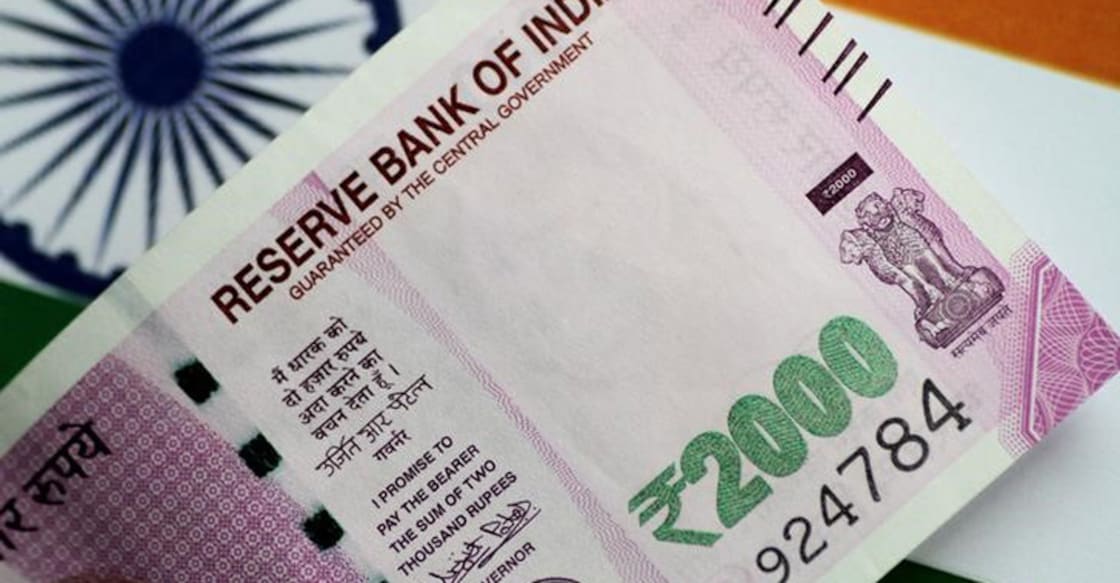Rupee depreciation and ballooning sovereign external debt

Mail This Article
The recent plunge of rupee and the deluge in Kerala have a lot in common. While the state government cited the unprecedented heavy rain as the reason for the flood, Finance Minister Arun Jaitley attributed the fall of rupee to 'global reasons.' Both echoed a degree of helplessness. During the crisis, both said the authorities are doing everything and there is no need to panic. However, in the end both resulted in heavy damage which could have been mitigated, had it been managed prudently.
The state government fought the crisis by mobilizing all resources with vigorous public support. Nevertheless, the flood culled about 350 lives and the estimated financial loss was Rs 20,000 crore. The economic and financial loss of the rupee depreciation is not easily quantifiable.
While exporters and NRIs are all cheers, the government should be worried about getting on the cycle of increasing rupee cost of oil import, surge in domestic oil price and transportation cost, inflation and further increasing the interest rate which will negatively impact economic growth. While the impact of rupee depreciation on the oil import bill is widely discussed, there is little on the impact on government’s sovereign external debts, especially on the state governments’ budget.
India’s sovereign external debt as on December 31, 2017 was $108.9 billion ($10,900 crore) equivalent to Rs 7 lakh crore at Rs 63.85 per dollar on the same day. When rupee hit Rs 73 after loosing 14.3%, the same external debt in rupee terms reached Rs 8 lakh crores, increased by Rs 1 lakh crores, which is more than the total monthly GST collection of Rs 95,000 crores or threefold of the estimated Rs 30,000 crore required to rebuild Kerala’s flood affected infrastructure and livelihood.
In addition to interest rate, foreign currency borrowing should factor exchange loss in calculating the financing cost. Lower interest rate makes foreign currency borrowings look cheaper and attractive than the domestic borrowing. But cheap loans may not always be as cheap as it appears. The hidden forex cost of a falling rupee can make cheap foreign currency loan very expensive. With 14% rupee depreciation, the funding cost of a foreign currency loan borrowed at 2% interest rate becomes 16%, which is much higher than the government’s rupee denominated bond rate of 8 per cent.
Prudent financial management should also factor the cash flow aspect. External borrowing will result in cash flowing out of the country which could be saved and circulated within the country if it is domestically borrowed. In addition to oil import, foreign currency loan repayment also exerts pressure on the rupee. Similar to Make-in-India for manufacturing, which in addition to job creation aims to save foreign exchange, the government should consider 'Take-in-India - in rupee' for government borrowings. This will save valuable foreign currency and take the pressure off rupee.
Most of the borrowings from international financial institutions such as World Bank, and Asian Development Bank are used for funding state government projects. Depreciation of rupee adds to repayment obligation of the foreign currency loans which will be an additional financial burden on the state budget and tax payers, albeit the depreciation and ensuing extra cost is not be attributable to any of the state government’s policy actions. Arguably, the Centre should absorb the exchange loss of such loans.
In a falling currency era, lucky are those states that do not have foreign currency loans in their books. Arguably, the causes for both flood due to unexpected heavy rain and a plummeting rupee for 'global reasons' may be beyond the control of governments, but a prudent flood and financial management can mitigate the risks, effects and damages.
(The author is co-founder and CEO of Scaleup Consulting LLP, formerly Senior Financial Controls Specialist, Asian Development Bank; email: fmathewca@gmail.com)

